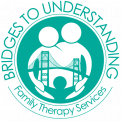I had no idea what I was getting myself into when I signed up for the Goldman Sachs 10,000 Small Businesses Development Program… and I couldn’t have been more honored to participate in this elite educational opportunity among esteemed entrepreneurs I now call friends.
What I expected to learn from the program was how to grow my business. What I ended up actually learning was how to take a deep and thoughtful look at myself in different roles in my life. I highlighted the negative attributes at first, as I think we all do from time to time. In a questionnaire about how I lead, I was classified as “amiable” in my management style. It fit me well. Accommodation to the maximum, putting others ahead of myself, a focus on general likability, exploring further and asking questions instead of hard line boundaries. I’m not sure if this engagement style was expected of me growing up because I was a woman, or because I was raised by a generation from over 100 years ago (my grandparents, “The Greatest Generation”), when roles were defined very differently than today. I realized that the traits that defined me as a person were not the traits of an effective leader. In reality, my over-accommodation actually burdened my business, myself, and at times even others since we rely on one another as a team. General likability also meant that I struggled to hold others accountable when it was necessary due to a fear that it would not be well-received. This hard look at myself was eye-opening. At the same time, I saw the positive impact I was able to offer others through learning and guidance. I learned that I was able to influence others positively in the way they work with children in treatment, and that my positivity and transparency created a positive team dynamic. Pointing to positive personal attributes, although an uncomfortable process, was an incredible lesson as well.
I ask my clients to complete interventions such as this all the time… my practice focuses on strengths, resilience, and positivity in personal outlooks and views of others. Here I was, sitting in a Goldman Sachs course, realizing just how difficult this task truly was. To honestly and genuinely look at myself, my business, my relationships with others, I finally saw a pathway forward that allowed me to develop into an effective leader, not just a likable one. Traits that I was raised to uphold as strengths were actually deficits in business. I knew I needed to change.
It had me thinking… how are we instilling traits in our children? What do we want to see in this next generation, and how do we accomplish this while also allowing a child to be their true self? And finally, how do society’s current trends of “positive” traits impact this process? Every family is different, every culture as well, and there is no perfect answer. Pull out the strong will from a child who asks “Why?” and tells you “No”, and are you eliminating their learning of how to create healthy boundaries and speak up for themselves? When parents ask me how to address behaviors with their child, I begin by explaining there is no right or wrong answer to what they should do. I ask them what they are hoping to accomplish, what the underlying reason is that their child is behaving a certain way, and how to honor a child’s true nature without molding them into what we feel society wants from them. These are difficult topics to cover, and I’ve barely scratched the surface.
So, with this in mind, I can say without a doubt: change is hard. To change how you relate to others, communicate needs, and hold accountability is a difficult process. I am grateful to Goldman Sachs 10,000 Small Businesses program for helping me to explore the possibility of growth in many aspects of my business, but most importantly in myself.
It’s true what they say, change (and owning a business) is not for the faint of heart.
~ Christy Livingston, LMFT, RPT-S
